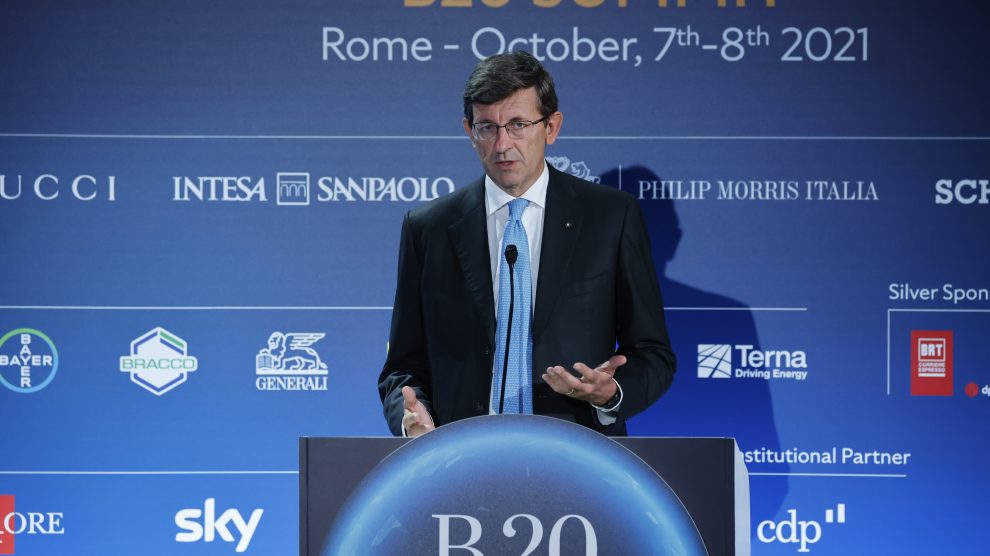Italy’s Department for Digital Transformation, led by the Minister for Technological Innovation and Digital Transition Vittorio Colao, greenlit the Public Administration (PA) infrastructure project drawn up by a consortium led by telco giant Tim and participated by State lender CDP, aerospace and tech titan Leonardo and Sogei, an in-house IT company of the Ministry of Economy and Finances.
The tender is expected in the first weeks of 2022 and will adopt the consortium’s offer as its baseline. Other participants can then improve on it to try to overturn the result. The winning quartet will still have an advantage, as it will be able to at least tie the best offer.
Building the PA’s cloud is a crucial step of the national cloud strategy, unveiled in September, which in turn is a pillar of Italy’s digital transition process. The European-funded National Recovery and Resilience Plan (NRRP) earmarked €900 million to build a cloud infrastructure capable of securely handling the Italians’ data.
According to the strategy, the final contract will be awarded by the end of 2022. Data and services must be transferred onto the new cloud “by the end of 2025.” But getting there (securely) will require a momentous effort on behalf of the State and selected companies.
The reasons behind the choice
The Department explained it received and examined three public-private partnership proposals. Two other alliances – Almaviva-Aruba and Engineering-Fastweb – competed with the winning consortium, which was chosen as its plan “is fully compliant with the requirements expressed in the Cloud Italia policy, to an entirely satisfactory extent.”
The final decision was taken together with experts of the Department and the Minister for Technological Innovation and Digital Transition, as well as a financial advisor, the related structures of the Presidency of the Council of Ministers and officials from the National Cybersecurity Agency.
The decree enshrining the Department’s decision states that Fastweb’s proposal – which was “adequate from an economic, financial, legal and governance point of view” – isn’t entirely “complete and innovative from a technological point of view.” That of Almaviva and Aruba, instead, “presented itself as both incomplete and non-innovative under the technological profile, and inadequate under the economic and financial profile.”
It’s all about security
The Department also pointed out that the winning consortium’s proposal meets the completeness requirements on matters of cloud services and security of “strategic” and “critical” PA data, integrating with migration assistance services the PA’s subdivisions and training of PA personnel.
“The selected project,” reads a note, “will be published and put out to tender, in accordance with the procedures provided for and permitted by current legislation, through a special call for tenders prepared by Defense Services, the Ministry of Defence’s in-house company.
The choice was presumably dictated by matters of national security relating to the management of data in the cloud, which will involve, as suppliers of the winning bidder, major non-EU operators such as American cloud providers Google (which is also Tim’s technology partner in their joint venture, Noovle), Oracle, Microsoft and Amazon Web Services.





